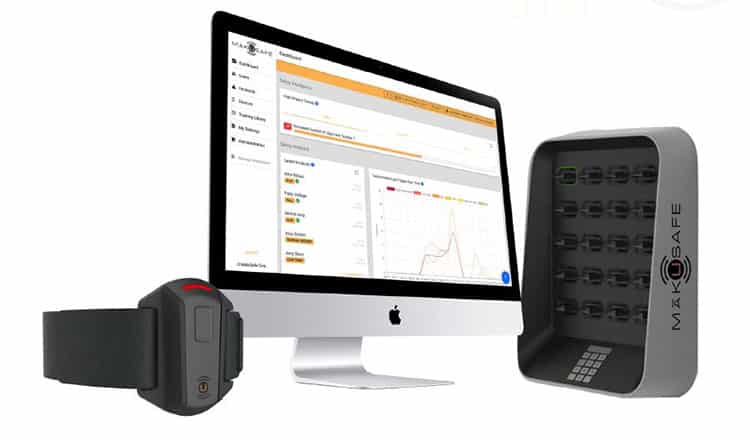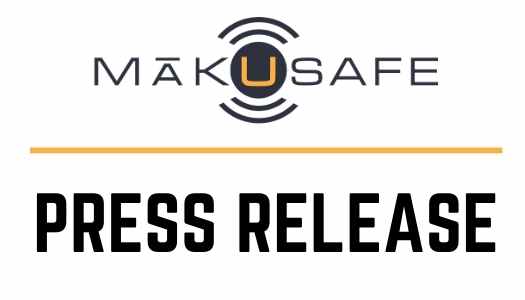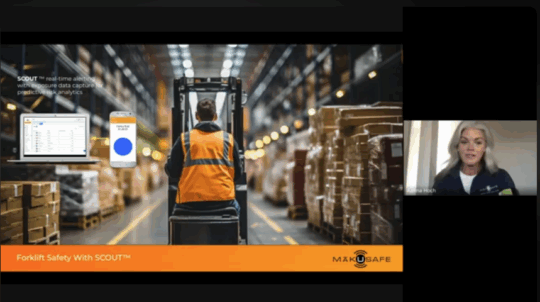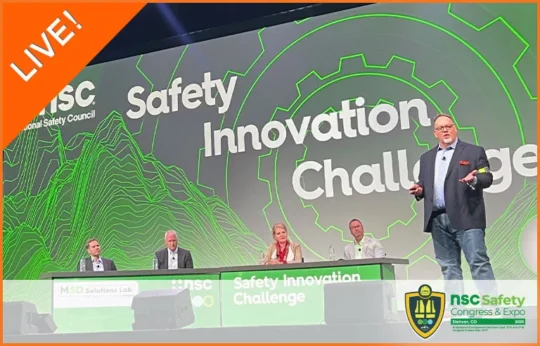Wearable Tech Benefits Shared in New Equipment Digest
August 17, 2020
MākuSafe’s innovative workforce wearable device and cloud-based data insights platform was recently discussed in New Equipment Digest.
In the article written by John Hitch, they discuss the history of worker safety, the terrifying true statistics and the challenges organizations must overcome to help keep their people safe on the job. Here’s a few key excerpts from the article. Read the entire piece here.
“Roughly 50 employees suffer fatal injuries at work annually in Iowa, or almost one per week. In 2017, the Bureau of Labor Statistics tallied the total U.S. number at 5,147. Globally, 2.3 million die a year due to work-related injury or illness, or 6,000 a day, according to the International Labour Organization. But no one can really tell how many near misses there are, how many times someone courts tragedy and instead of slipping in a puddle and falling down the steel stairwell, merely loses their balance. Few are inclined to report an “almost” bad thing unless they just avoided a horrific event like a plane crash or factory explosion.”
“Today, there are not many data-forward solutions to help plant managers avoid near-misses, let alone injury. But Gabriel Glynn, the great-grandson of John Griffin, is set to change all that. The Des Moines-based company he co-founded, MākuSafe(pronounced “Make-You-Safe”), provides workers with a sensor-stuffed wearable device worn above the elbow that collects all sorts of vital environmental data, from noise to light to temperature. The data are then transmitted to the charging kiosk/edge device, which then sends the info to the cloud. This is where the MākuSmart® software correlates location and environmental data, combing through real-time sensor data to find anomalies and potential dangers. Over time, with enough training of the software to recognize a company’s cadence, the system promises to identify dangers and OSHA violations before they happen.
The device is in five facilities now and will be available Q1 of 2020, at a cost of about $22/month per device. The battery life is about 24 hours, so two workers can use it in the same day. The national worker’s comp bill per month is almost $5 billion, so it’s a good deal.”

“Preventing falls is the obvious use, and a reason EMC Insurance Companies, also based in Des Moines, is running a pilot with MākuSafe, which identifies itself as insurtech (insurance technology).
“The world’s changing for our agents and policyholders,” says Bryon Snethen, EMC VP of risk improvement. “We want to provide them value beyond insurance; wearable technology and effective data analysis are some of the ways we’re pursuing that.”
“While that testing is still ongoing, the basic calculus works from a cost-benefit standpoint. Worker’s compensation claims cost $1.2 billion per week in America, a huge reason why the industrial safety market is worth $3.3 billion and will grow 64% by 2024, according to MarketsandMarkets Research.
An average wrist injury, likely due to a fall, can cost $50,000. It makes more sense for an insurer to outfit the factory with MākuSafe’s devices and software as a service for about $20,000 a year for a factory of 150 (if employees share the devices). If the solution prevented one such injury over two years, the insurer saves $10,000.”
“The more employers can do to make jobs safer and more pleasant, and allow workers to not get fatigued as often, the can retain and attract a better workforce,” Glynn says.
It’s also a great way to show current employees their worth and keep them from seeking a new environment.
“Employees will go down the street for a variety of reasons, and because of that competition, the value of the human worker has never been higher in my entire lifetime,” Glynn says.





